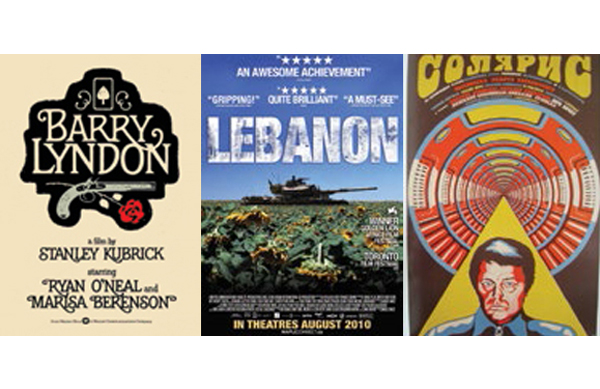Make some space on the couch and settle in for this fall’s movie picks.
Barry Lyndon (1975)
Here’s a Stanley Kubrick film that explores space — but no, we’re not talking about 2001: A Space Odyssey. Our theme this issue is “space,” a flexible word that finds a remarkable expression in Kubrick’s Barry Lyndon (1975), the director’s adaptation of a sarcastic Thackeray novel. In this majestic film, space is what defines our plucky but foolish protagonist (played by a never-better Ryan O’Neal): how he tries to impose himself in the spaces of the story and how he is overwhelmed by them. This is rendered by Kubrick in a series of beautifully composed shots that show poor Barry as a mostly ineffectual figure in a much larger landscape, whether he is lost in the regimented lines of an army or in the lavish mansions where he pointedly does not belong. Kubrick’s eye may betray a dubious attitude about these human activities, but he finds a wry philosophical acceptance in the film’s final title card, a knowing jest from the graveyard: “It was in the reign of King George III that the aforesaid personages lived and quarreled; good or bad, handsome or ugly, rich or poor, they are all equal now.”
Lebanon (2009)
Director Samuel Maoz served in the Israeli military during the 1982 Lebanon war. He used his experiences to create this uncanny 2009 film, which (save for the opening and closing shots) takes place entirely within an Israeli tank as it rolls into combat. This is not merely an aesthetic stunt: By keeping his camera confined within this cramped space, Maoz contracts our field of vision, and thus forces our experience of the war to conform to that of the panicked, uncertain soldiers inside the vehicle. Our view of the world outside is confined to the aperture of the tank’s gunsite, through which everything is a potential target — confining us in this small space conjures the fog of war and makes us realize that we cannot understand the bigger picture (literally as well as figuratively, in this case). Mistakes get made and people get hurt when we are kept to a limited perspective.
Solaris (1972)
And now to outer space — yet a penetrating look at inner space too. The great Russian filmmaker Andrei Tarkovsky made this intimate 1972 epic about a space voyager who investigates strange occurrences near a planet where, it appears, events from one’s past may be taking realistic presentday form. Tarkovsky was not a storyteller but a spiritual explorer, so don’t expect a straight-ahead piece of science fiction. However, if you let his slowed-down rhythms and occasionally trippy visuals do their work, you may find yourself falling into the mesmerized, if somewhat bewildered, position of the cosmonaut. Here we see that travel to outer space is merely another way to journey inside the psyche, to boldly go into the cosmos of self. (Solaris was remade by Steven Soderbergh and George Clooney in 2002, an interesting variation on the original’s theme.)



